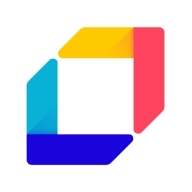

Veracode and Aqua Cloud Security Platform compete in application security. Veracode offers superior features, while Aqua Cloud Security Platform excels in deployment efficiency and customer support.
Features: Veracode provides comprehensive scanning capabilities, effective vulnerability management, and extensive coverage. Aqua Cloud Security Platform offers robust integration, advanced container security, and strong deployment efficiency.
Room for Improvement: Users suggest Veracode improve its reporting capabilities, reduce false positives, and enhance user assistance features. Aqua Cloud Security Platform users recommend better documentation, more streamlined user customization, and improved user assistance features.
Ease of Deployment and Customer Service: Veracode's deployment is considered straightforward but time-consuming for large-scale installations, with reliable customer service. Aqua Cloud Security Platform provides a quicker deployment process and responsive customer service, making it more user-friendly in this aspect.
Pricing and ROI: Veracode's setup cost is generally higher, but users note significant ROI due to its extensive functionality. Aqua Cloud Security Platform offers a more cost-effective setup with satisfactory ROI, especially for those focused on container security.
| Product | Market Share (%) |
|---|---|
| Veracode | 2.9% |
| Aqua Cloud Security Platform | 2.8% |
| Other | 94.3% |

| Company Size | Count |
|---|---|
| Small Business | 6 |
| Midsize Enterprise | 1 |
| Large Enterprise | 10 |
| Company Size | Count |
|---|---|
| Small Business | 69 |
| Midsize Enterprise | 44 |
| Large Enterprise | 115 |
Aqua Security stops cloud native attacks, preventing them before they happen and stopping them when they happen. Dedicated cloud native threat research and the most loved cloud native security open source community in the world put innovation at your fingertips so you can transform your business. Born cloud native, The Aqua Platform is the most integrated Cloud Native Application Protection Platform (CNAPP), securing from day one and protecting in real-time. Aqua has been stopping real cloud native attacks on hundreds of thousands of production nodes across the world since 2015.
Aqua Security Features
Aqua Security has many valuable key features. Some of the most useful ones include:
Aqua Security Benefits
There are many benefits to implementing Aqua Security. Some of the biggest advantages the solution offers include:
Reviews from Real Users
Lizeth Z., Cloud Security Specialist at Telstra, says, “Aqua Security is the most advanced solution in the market for container security. Aqua Security allows us to check for vulnerabilities in the CI/CD pipeline, so application teams can remediate issues before going into production. Aqua Security helps us to check the vulnerability of image assurance and check for malware.”
Veracode is a leading provider of application security solutions, offering tools to identify, mitigate, and prevent vulnerabilities across the software development lifecycle. Its cloud-based platform integrates security into DevOps workflows, helping organizations ensure that their code remains secure and compliant with industry standards.
Veracode supports multiple application security testing types, including static analysis (SAST), dynamic analysis (DAST), software composition analysis (SCA), and manual penetration testing. These tools are designed to help developers detect vulnerabilities early in development while maintaining speed in deployment. Veracode also emphasizes scalability, offering features for enterprises that manage a large number of applications across different teams. Its robust reporting and analytics capabilities allow organizations to continuously monitor their security posture and track progress toward remediation.
What are the key features of Veracode?
What benefits should users consider in Veracode reviews?
Veracode is widely adopted in industries like finance, healthcare, and government, where compliance and security are critical. It helps these organizations maintain strict security standards while enabling rapid development through its integration with Agile and DevOps methodologies.
Veracode helps businesses secure their applications efficiently, ensuring they can deliver safe and compliant software at scale.
We monitor all Container Security reviews to prevent fraudulent reviews and keep review quality high. We do not post reviews by company employees or direct competitors. We validate each review for authenticity via cross-reference with LinkedIn, and personal follow-up with the reviewer when necessary.